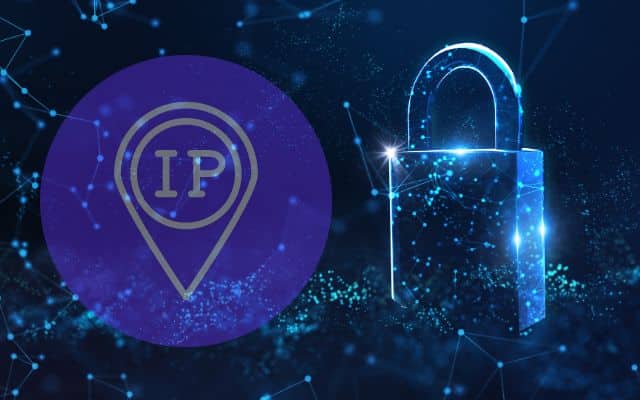What Happens If Someone Gains Access to My IP Address? Can They Pinpoint My Exact Location?
Understanding the Implications of IP Address Access and Location Privacy

What occurs if someone gains access to my IP Address? Can they accurately pinpoint my precise location? If we have to go to someone’s house, we need its exact location to reach there. Same with the IP addresses in the internet world. IP addresses serve as unique addresses that help the user to reach their destination on the internet. They enable the devices to communicate with each other. And allow us to explore the vast expanse of the internet. But the question arises, can someone who gains access to your IP Address can track your exact location? we will try to provide the answer to that question. We are dealing with IP addresses, geolocation, privacy issues, and strategies for protecting your online identity.
Understanding IP Addresses
IP Address is the virtual number plate (like a home number plate) that distinguishes your device in this vast internet world. Each device connected to the internet is assigned a unique set of numeric identifiers – the IP Address.
The Internet Service Providers (ISPs) allocate these virtual addresses, either temporarily or permanently. This serves as a communication and data exchange. Currently, there are two versions of IP Addresses, IPv4 and IPv6. I do not want to go into the details, what’s the difference between them? But in order to overcome the shortage of addresses (IPv4), the new version IPv6 was introduced.
IP Addresses and Geolocation
It’s true that IP addresses can offer a rough idea of your general geographic location. “Where am I right now?” is a question that IP-based geolocation can answer to some extent. Geolocation services link IP addresses to specific locations using databases and algorithms. These services consider factors such as the ISP’s registered location and the area’s general network infrastructure.
You may be shocked to hear that with an IP address, one can locate your location. But do not worry; these addresses can offer a rough idea of your general geographic location. However, IP-based geolocation can give an answer to the question “Where Am I Right Now” to some extent. These geolocation services use databases and algorithms to associate IP Addresses with physical locations. But that location is generally the ISPs; registered location not the exact location of the user.
Limitations of IP-based Geolocation
Finding the exact location of the user from its IP Address is just like trying to find the needle in a haystack. While the question “Where Am I Right Now” might be answered with a city, or a region. But pinpointing to an exact location just solely relying on IP Address is challenging. There are several reasons why IP-based geolocation may be potentially inaccurate. The reason may be Virtual Private Network (VPN) or proxy servers, whose motive is to mask the IP and lead to different locations than their physical one.
Legal and Ethical Considerations
Delving into someone’s precise whereabouts using their IP address opens up Pandora’s box of legal and ethical questions. Privacy concerns are paramount. While some legitimate services use IP-based geolocation for targeted advertising or content localization, invasive tracking without consent raises serious ethical red flags. Legal frameworks vary globally, but it’s crucial to respect individual privacy rights.
Using someone’s IP address to track their precise location raises several legal and moral questions. Privacy issues are crucial. Although some trustworthy businesses utilize IP-based geolocation to localize content or target advertisements. However, invasive tracking without authority consent raises severe ethical concerns. Although international legal systems differ, it is important to respect each person’s right to privacy.
Real-Life Examples
Instances of IP-based geolocation being utilized to identify individuals have been reported. These situations often involve law enforcement agencies tracking down potential cybercriminals or hackers. However, accuracy isn’t always guaranteed. Mistakes have led to unfortunate situations where innocent individuals were accused or questioned due to erroneous IP data.
Several instances have been reported where a person is located through its IP Address. These situations often involve law enforcement agencies tracking down potential cybercriminals or hackers. However, accuracy isn’t always guaranteed. Mistakes have led to unfortunate situations where innocent individuals were accused or questioned due to inaccurate IP data.
Methods to Protect Your Privacy
Employee protective measures to safeguard your online privacy and avoid being easily trackable. Using a VPN, for example, can route your internet traffic through servers in different locations, masking your actual IP address. This prevents unauthorized parties from easily pinpointing your location. Proxy servers also provide a layer of anonymity, bouncing your data through multiple intermediaries before reaching its destination.
Beyond IP Address Tracking
While IP-based geolocation is one piece of the puzzle, other techniques are at play in the online tracking landscape. Browser fingerprinting, for instance, analyzes unique browser configurations and settings to identify users across websites. Further, GPS data from mobile devices, coupled with social media check-ins, can provide complete location data.
-
10 Ways Evolving Technology Affects Cybersecurity
-
How Cybersecurity is Changing Technology Today
-
Common Types of Hacks in Cybersecurity (2022)
Conclusion
In the vast virtual space, the question “Where am I now?” takes on a new dimension. IP addresses provide clues, but they don’t always reveal your exact location. IP-based geolocation has limitations and can be inaccurate, especially in a world where privacy is important. Tools like VPNs and proxies can increase your online security and prevent easy tracking. Keep in mind that, despite the plethora of information available online, maintaining your privacy is still a top priority.







